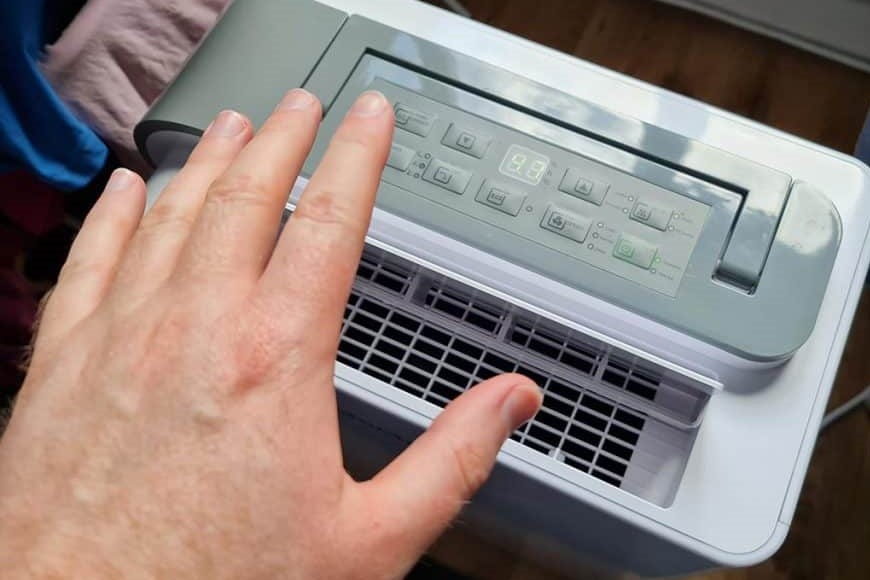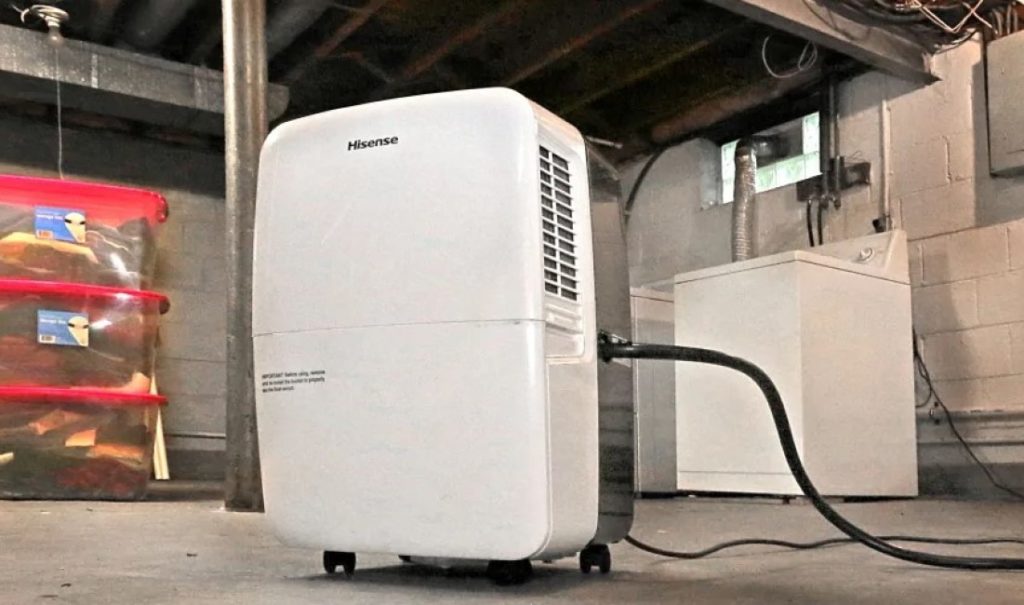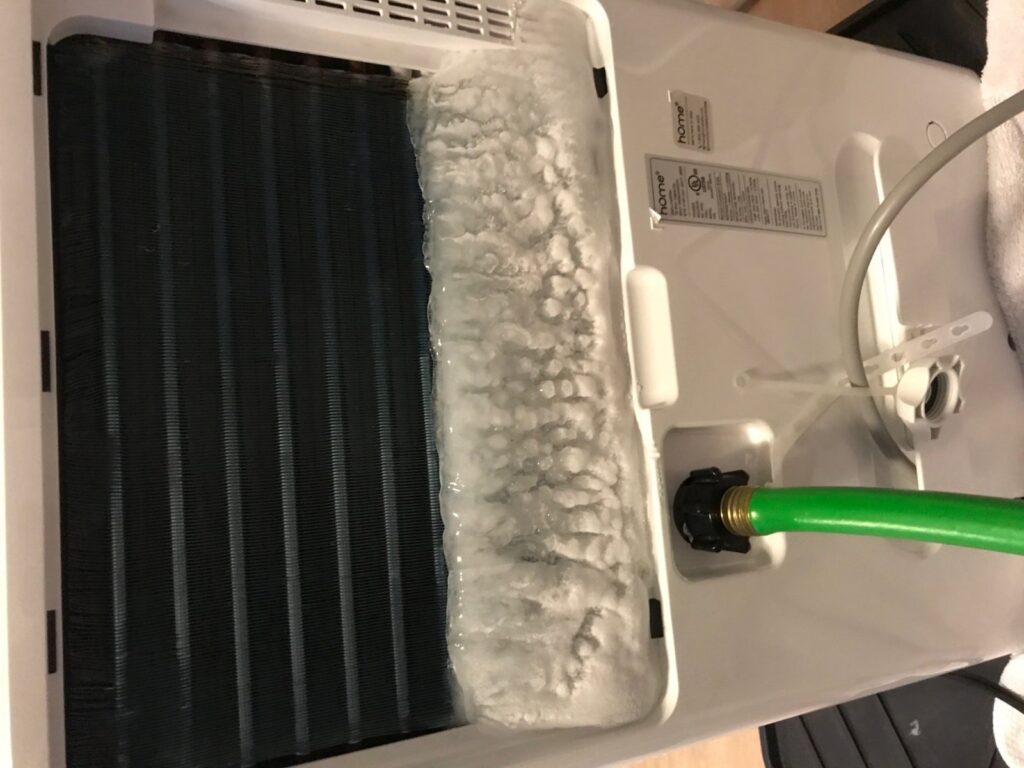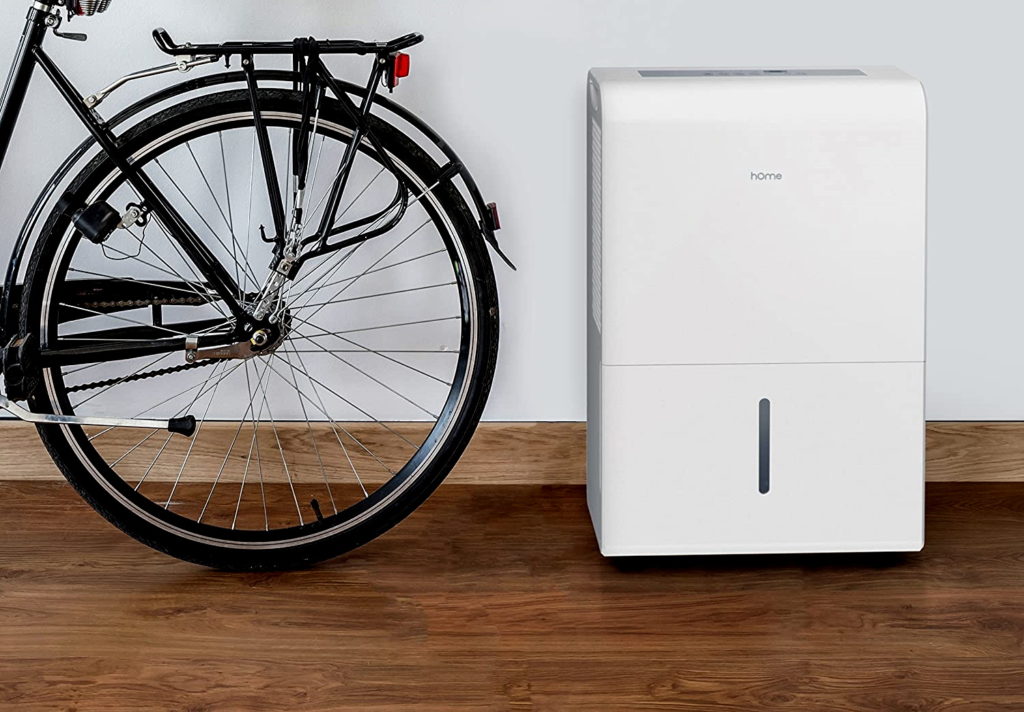

Dehumidifiers are energy-saving and a more economical option than an air-conditioning system. However, the problem most people experience with this device is that it produces a lot of heat while functioning. So we have done some review and written this post for those of you who want to know if there is a dehumidifier that does not produce heat.
We will be discussing what alternatives are available and give a possible solution to the heat problem. However, despite the heat produced by dehumidifiers, they remain one of the most popular devices in homes today.
It is natural for dehumidifiers to create heat while running. However, the small amount of heat it produces may not be felt depending on the size of your room and the frequency the machine is running on. According to most reviews, the sturdiest model must be the 3000 Sq. Ft. Dehumidifier by Midea, which is the most efficient option in the market thanks to its energy star rating.
Dehumidifiers naturally draw warm air into their coils using the fan-sucking system. The device then cools the hot air and extracts the moisture. You can compare the method of operation to a home refrigerator. When the moisture is removed, it releases the dry air into the room on the other side of the dehumidifier. The warm air released is the reason why most people feel heat, especially during the summer or hot weather. Dehumidifiers are not suitable for homes in places with high humidity. There are, however, very compact-sized dehumidifiers that can work in small spaces and have little heat effect. According to most reviews, the smallest size model must be the Pro Breeze 1200 Cubic Feet Mini Dehumidifier, effective for smaller rooms because of its 150 feet capacity. It is one of the best types of dehumidifier for smaller spaces.
All dehumidifiers produce heat, but the amount of heat varies. The heat produced has its benefits. When the warm air released from the dehumidifier comes in contact with the moisture, it turns to steam, enabling the dehumidifier to work faster.
Dehumidifiers with a higher capacity are energy-saving and work faster than other dehumidifiers. There are three types of dehumidifiers sold today, and the type you choose will depend on the size of your living space. Also, the type of dehumidifier you have determines the amount of heat it produces, and you can tell if it would be a problem.
The refrigerant dehumidifiers operate similarly to the way your fridge works. It transfers the moisture to the metal plate inside the device and condenses it. The dehumidifier collects the water in the unit’s tank. The refrigerant dehumidifiers come with a fan that sucks the air in the room into the device and then passes it over the cooling plate. At some point during its operation, when the room has reached the optimum humidity level, the device will automatically shut off. The refrigerant dehumidifiers are ideal for climates with average room temperature. It can be used in places with normal temperatures and not cold temperatures. According to most reviews, the most energy-efficient model is the Ivation 70 Pint Energy Star Dehumidifier, which comes with a pump and a high-capacity tank to collect the water. It is the most reliable option out there.
This type of humidifier is different from refrigerant dehumidifiers. The desiccant dehumidifiers soak water from the air with the help of silica gel found in new bags or electronic items. When the warm air makes contact with the silica wheel, it absorbs the moisture and transfers it to the unit’s tank. It can later be drained out through a pipe.
The desiccant dehumidifiers are more compact and suitable for smaller rooms. They can be used in places with cold temperatures.
However, this type of dehumidifier uses more energy than refrigerant dehumidifiers. It won’t work for homes with excess humidity.
The Whole House Dehumidifiers can be used in the loft area. This device sends air into your home through grills that are attached to the corridors and hallways. The air released is usually moist, and then it sends out unwanted air outside the house using the leak points in the house.
Of all the dehumidifiers mentioned above, the Whole House Dehumidifiers do not produce unnecessary heat. It is the most effective and most expensive of the three. It can only be installed if you own your home. However, most people will prefer refrigerant dehumidifiers since they produce less heat when compared to desiccant dehumidifiers. They also work in places with stable temperatures. It is possible to reduce the heat generated in refrigerant dehumidifiers by simply reducing the amount of time you switch it on. It is always best to get the ones with a higher capacity. According to most reviews, the 70-pint dehumidifier from hOmeLabs is an effective dehumidifier, which, thanks to its wide coverage area of up to 4,500 square feet, is the most reliable available today.
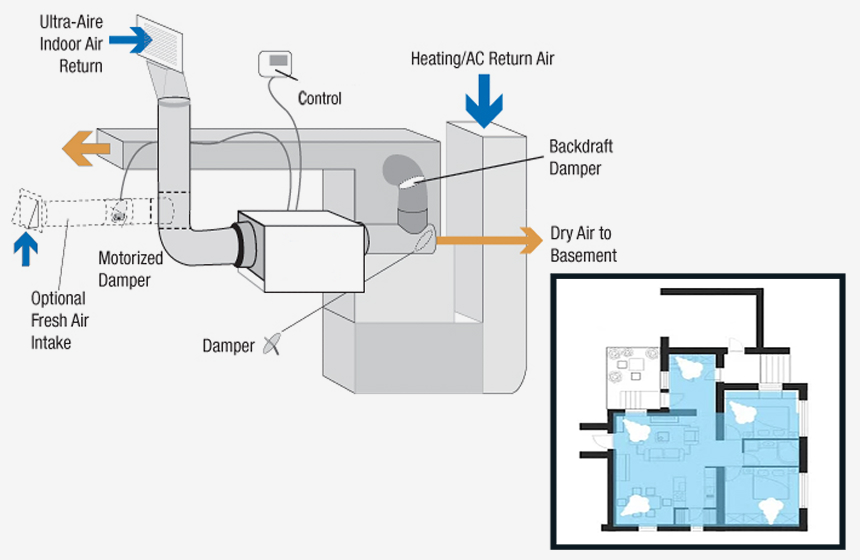
Most homeowners would love to know how they can reduce the amount of heat produced by their dehumidifier. The easiest way to do this is by reducing the amount of time it runs. Here are some tips to help reduce the heat produced by dehumidifiers.
Increasing the natural light coming into the room helps reduce the heat. When you do this, it decreases the moisture in the air and, in turn, will make the dehumidifier go off quickly.
Seal all your doors and windows properly to prevent moisture from entering the room. By sealing the outlets in your home, you can prevent the moisture from finding its way in. It is the only way you can get the dehumidifier to go off faster. If humidity finds its way in, the device can run all through the day and night. This will weigh on your electricity bills and will be expensive to manage.
An electric fan will make the room cooler and increase the airflow. It will also help improve the efficiency of the dehumidifier and make it switch off quickly.
Air-conditioners can be soothing, especially during the hot summer. You appreciate it more when you come back home from the hot temperature outside and cool down with the blasting air-conditioning system. The air-conditioner draws warm air to cool it. It has two directional flows, with one blowing cold air back into the room and sending the warm air out. Most people prefer to use air-conditioners during the summer and hot weather because it cools the air.
However, dehumidifiers operate in a more simple way when compared to air-conditioners. They can get rid of the humidity in the room and release dry air to improve the temperature. It makes the air cooler while at the same time being energy efficient. This cannot be said of the air-conditioning system because they tend to consume more power. You can, however, turn on both the air-conditioner and dehumidifier at the same time. It will allow the dehumidifier to work more efficiently. Based on comments from previous users, the sturdiest model is the Midea EasyCool Window Air Conditioner, which, thanks to its 12,000BTU capacity, is the best window air-conditioning system.
The primary role of dehumidifiers is to remove moisture from the air, and it works twice as hard when the temperature of the room is warm. If it works simultaneously with your air-conditioning unit, it will quickly remove the heat produced by the dehumidifier. This way, you get to remove heat and at the same time reduce the amount of electricity consumption.
It is best to use an air-conditioning system with a high energy star rating. They usually cost less to operate than other models. This type of air conditioning system also has a higher capacity which means they can do the job in less time.
It is important to have a dehumidifier in your home as they come with many benefits. They help to remove mold, bacteria, and dampness in your home. The only problem with this device is its tendency to cause heat in your home. Dehumidifiers suck in damp air and release warm air, which is a problem during the summer months. Most people want to know if there is a dehumidifier that does not produce heat. The truth is that all dehumidifiers produce heat but at varying degrees. You can reduce the effect of the heat if it becomes an issue in your home. We have gone through all the ways you can effectively do this while still enjoying the benefits of your dehumidifier.


